Saint William’s life started out rather privileged. Born into nobility, son of Count Herbert (treasurer to Henry I) and Emma (half sister of King Stephen), he was ordained a priest, and appointed to various positions within the Church at an early age. It is likely, given his lineage and connections, that his appointments were somewhat political in nature, although historians also agree upon his qualifications, piety, and successful shepherding of both his congregation and communities. Saint William was appointed canon of Weighton, and archdeacon of Riding, as well as treasurer of the Cathedral of York. He was, at that point, appointed Archbishop of York, but his appointment was strongly opposed by local clergy, including the acting archdeacon. William was accused of bribery, sexual incontinence, and a host of other sins, leading Saint Bernard of Clairvaux, acting upon information supplied by his Cistercian monks, to report to the pope that Wiliam was ‘rotten from the soles of his feet to the crown of his head.’
Despite unwavering belief and trust in Saint William, the Archbishop of Canterbury was reluctant to consecrate William as Archbishop, and sent word to Rome, awaiting papal approval and review. Pope Innocent III, despite having received complaints and accusations, agreed to proceed with the consecration, and William became Archbishop of York in 1143.
Unfortunately, Pope Innocent died soon thereafter, and the papal legate carrying William’s official bishop’s pallium (signifiying the authority of Rome) returned home. Without the pallium, William’s authority was greatly compromised, and his adversaries again sought to have him deposed. The newly elected pope, Pope Eugenius III (himself a Cistercian) ordered William suspended, and eventually deposed following a violent attack on monks and the burning of the monastery at Fountains. While William was not responsible for these actions, it had become clear that his appointment was causing significant (and now violent) disruption to the religious lives of those living in the diocese of York.
Through the ordeal of his public humiliation and deposition, Saint William remained conciliatory, kind, and humble. He persisted in his ministry until he was unable to do so, at which point he humbly took up residence at a monastery in Winchester, living as a monk for six years, and spending his days in prayer, rigorous fasting, and bodily mortification.
Upon the death of the Archbishop of York (who had replaced him) and Pope Eugenius III, William appealed to the newly elected Pope, Anastasius IV, and was reinstated as Archbishop of York in 1154. He returned humbly to his post, but was greeted by a triumphant crowd of laity whom had never doubted his piety, leadership, or holiness. Such was their numbers that the bridge over the River Ouse on which they stood collapses. Miraculously, no one was injured, which was taken as a sign of the Lord’s pleasure with Saint William’s return. St. William, finally having received the pallium, showed great kindness and forgiveness to the Cistercians who had opposed him, and promised full restitution to Fountains Abbey.
Sadly, Saint William died within a few weeks to months of his return to York. Allegations of poisining by his rivals (slipped into the Holy Eucharistic chalice) were made, although investigations were proven inconclusive. He was buried at the Cathedral of York, and shortly thereafter, a sweet-smelling oil began emmaniating from his tomb. Numerous miracles were reported, and many made piligrimage to visit his place of rest. An investigation of his life, led by the Cistercians (who had been his strongest detractors), proved his innocence of all the sins he had been accused of, and William was canonized by Pope Honorius III.
William’s life was certainly not easy. Putting ourselves in his shoes, it seems as if spite and anger and resentment would be normal reactions to the injustices and ill-treatment that he received. Nevertheless, Saint William remained steadfast and loving, preaching and practicing forgiveness, and focusing his attention on the Lord and His will. We might, in the midst of our busy schedules, pause and consider the implications on our own lives, the perceived injustices we suffer, the grudges we hold, the ease with which we are distracted from the will of the Lord for each of us.
St. William, you were chosen by God to be Archbishop of York, but were unjustly accused of sin. You were election was opposed by many in favor of another. Even through all this, you never took your eyes off of Christ and His will for you. You devoted yourself to a life of prayer and mortification. After many years, you were finally restored to the See that was rightfully yours. Instead of reserving spite, you showed the utmost amount of forgiveness and love for those who had before been in opposition to your election. Please help us to follow your example of perseverance and forgiveness so that we may forgive our transgressors and always persevere in the Lord’s will. Amen.
From the famed Saint William of York stained glass window at York Minster:
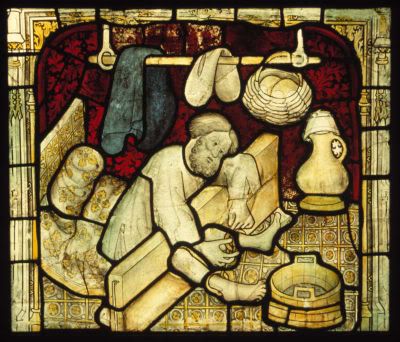
Inspired by the origins and spiritual history of the Holy Rosary, we continue our meditation on the psalms, one each day, in order, for 150 days.
Today’s Psalm: Psalm 45: Nuptial Ode for the Messianic King
1 My heart is stirred by a noble theme
as I recite my verses for the king;
my tongue is the pen of a skillful writer.
2 You are the most excellent of men
and your lips have been anointed with grace,
since God has blessed you forever.
3 Gird your sword upon your side, O mighty one;
clothe yourself with splendor and majesty.
4 In your majesty ride forth victoriously
in behalf of truth, humility and righteousness;
let your right hand display awesome deeds.
5 Let your sharp arrows pierce the hearts of the king's enemies;
let the nations fall beneath your feet.
6 Your throne, O God, will last for ever and ever;
a scepter of justice will be the scepter of your kingdom.
7 You love righteousness and hate wickedness;
therefore God, your God, has set you above your companions
by anointing you with the oil of joy.
8 All your robes are fragrant with myrrh and aloes and cassia;
from palaces adorned with ivory
the music of the strings makes you glad.
9 Daughters of kings are among your honored women;
at your right hand is the royal bride in gold of Ophir.
10 Listen, O daughter, consider and give ear:
Forget your people and your father's house.
11 The king is enthralled by your beauty;
honor him, for he is your lord.
12 The Daughter of Tyre will come with a gift,
men of wealth will seek your favor.
13 All glorious is the princess within her chamber ;
her gown is interwoven with gold.
14 In embroidered garments she is led to the king;
her virgin companions follow her
and are brought to you.
15 They are led in with joy and gladness;
they enter the palace of the king.
16 Your sons will take the place of your fathers;
you will make them princes throughout the land.
17 I will perpetuate your memory through all generations;
therefore the nations will praise you for ever and ever.
Day 159 of 365
Prayer Intentions: Steadfast focus on the Lord; Hearts of forgiveness; An end to anger and grudges; Healing of relationships which have suffered.
Requested Intentions: For healing of a stomach illness (L); For the repose of the soul of a sister (C); Vocational security for family, Financial security for daughter beginning college (M); Vocational guidance, courage and strength (I); Reconciliation of a relationship (M); Strength, financial security, motivation, repose of a loved one (V); Recovery of left shoulder fracture (E); Financial recovery (A); The repose of a lonely soul (L); Health for an ailing nephew (A); Those suffering from depression (J); Successful adoption (S); Healing of a father battling cancer (S).
Psalm: Psalm 45: Nuptial Ode for the Messianic King


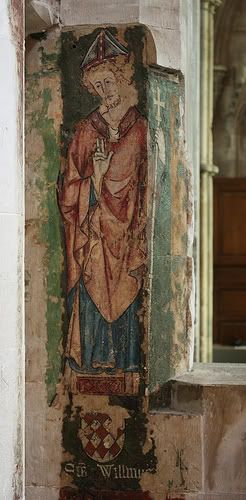
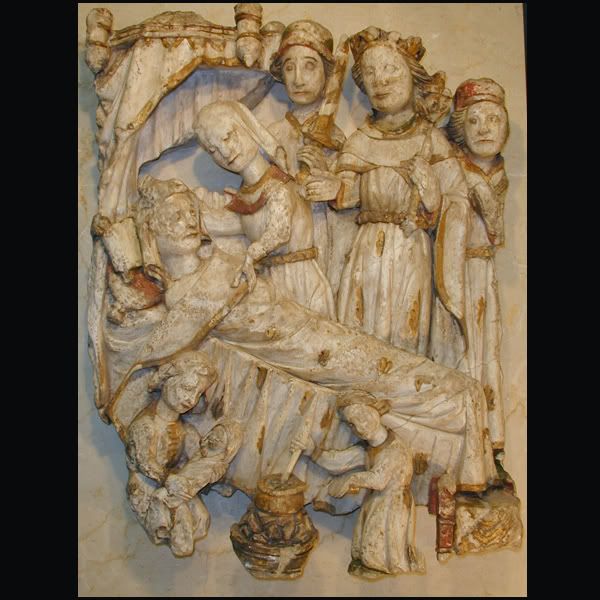
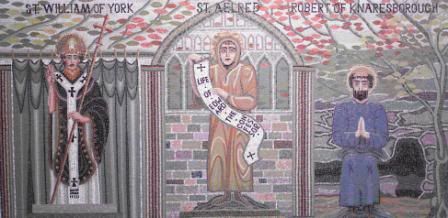
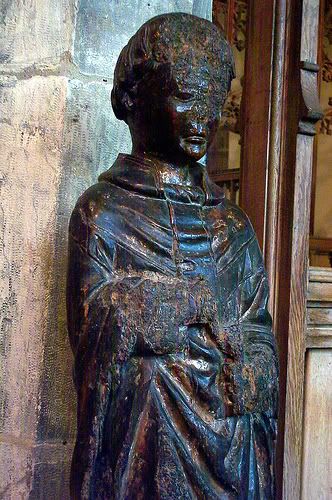



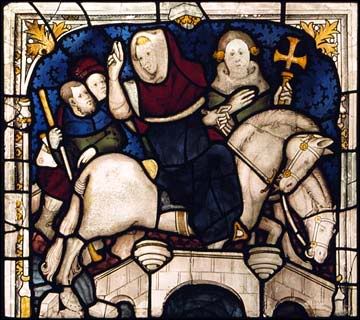
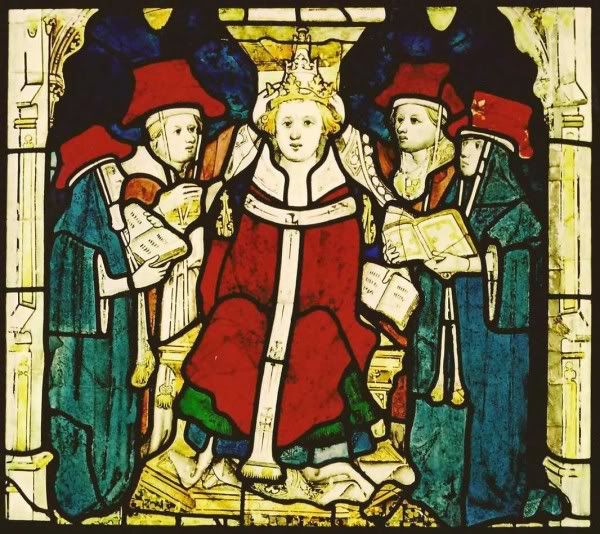

No comments:
Post a Comment
Thanks for leaving a comment. If you wish to submit a prayer request, however, please do so above, using the "Contact" tab.